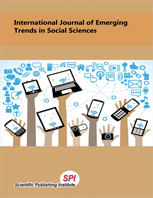Financial Statement Fraud Detection with Fraud Triangle
DOI:
https://doi.org/10.55217/103.v13i1.556Keywords:
Beneish M-Score, Change in auditor, External pressure, Financial stability, Nature of industry.Abstract
The purpose of this study was to analyze elements in the fraud triangle to clarify the possibility of financial statement fraud in the consumer goods industry subsector. The population in this study is all manufacturing companies in the consumer goods industry sub-sector measured by the M-score model. The total sample used is 36, consisting of 9 companies. The method in this research is quantitative with primary data type. The analytical tool used in this study is logistic regression analysis using the SPSS v20. The results of this study indicate that external pressure, has a significant effect, meanwhile, financial stability, nature of industry and change in auditors do not affect the possibility of fraudulent financial statements. Simultaneously these four variables affect the financial statement fraud. The implication is to contribute to those who have an interest in assessing the potential for fraud in the company. The higher the LEVERAGE value, the greater the potential for fraudulent financial statements.


